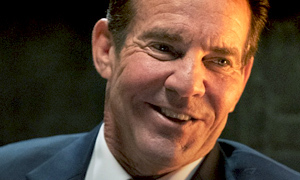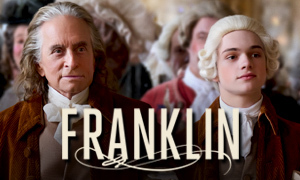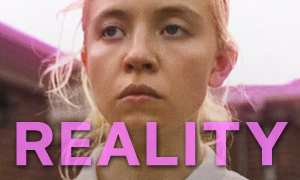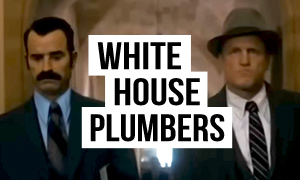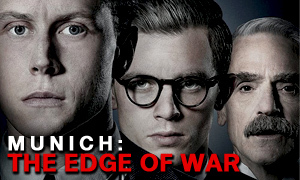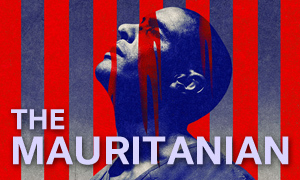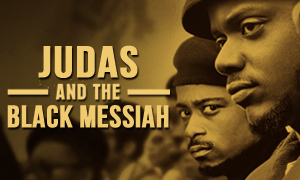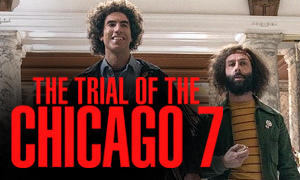Kill the Messenger: History vs. Hollywood
based on the books "Kill the Messenger" by Nick Schou and "Dark Alliance" by Gary Webb
| REEL FACE: | REAL FACE: |
Jeremy Renner
Born: January 7, 1971 Birthplace: Modesto, California, USA | Gary Webb
Born: August 31, 1955 Birthplace: Corona, California, USA Death: December 10, 2004, Carmichael, California, USA (suicide) |
Rosemarie DeWitt
Born: October 26, 1974 Birthplace: Flushing, Queens, New York City, New York, USA | Sue Stokes (Sue Webb)
|
Mary Elizabeth Winstead
Born: November 28, 1984 Birthplace: Rocky Mount, North Carolina, USA | Dawn Garcia
Born: June 5, 1959 Birthplace: Santa Clara, California, USA |
Oliver Platt
Born: January 12, 1960 Birthplace: Windsor, Ontario, Canada | Jerry Ceppos
Born: 1947 |
Michael K. Williams
Born: November 22, 1966 Birthplace: Flatbush, Brooklyn, New York City, New York, USA | "Freeway" Ricky Ross
Born: May 3, 1960 Birthplace: Troup, Texas, USA |
Andy Garcia
Born: April 12, 1956 Birthplace: Havana, Cuba | Norwin Meneses
Born: June 21, 1943 Birthplace: Nicaragua |
Paz Vega
Born: January 2, 1976 Birthplace: Seville, Seville, Andalucía, Spain | Coral Baca
|
Yul Vazquez
Birthplace: Cuba | Danilo Blandon
Birthplace: Nicaragua |
Tim Blake Nelson
Born: May 11, 1964 Birthplace: Tulsa, Oklahoma, USA | Alan Fenster
Born: June 27, 1940 Birthplace: Los Angeles, California, USA |
When was Gary Webb's CIA conspiracy story first published?
Our research into the Kill the Messenger true story reveals that the real Gary Webb's three-part series called "Dark Alliance" was published in August 1996 by the San Jose Mercury News, the newspaper that employed him.
What exactly was Gary Webb trying to expose by writing his "Dark Alliance" article?
Journalist Gary Webb's three-part 1996 series "Dark Alliance" asserted that the Central Intelligence Agency turned a blind eye to accusations that some of the CIA-supported Nicaraguan Contras made money by smuggling drugs into the U.S. In turn, the article claimed the contras used that money to buy weapons to fight the socialist Sandinista government in Nicaragua, which the U.S. government opposed. Webb's article purported that the crack cocaine epidemic that exploded in the 1980s was partially due to the CIA ignoring the drug trafficking being undertaken by the rebels it was supporting.
"Dark Alliance" was the first significant attempt to document a connection between the CIA's anti-communism efforts and drug trafficking in Central America. Webb focused on the Los Angeles-based drug kingpin "Freeway" Ricky Ross, portrayed by Michael Kenneth Williams in the movie. Ross' coast-to-coast operation flooded U.S. streets with crack. The Los Angeles Times estimated his conglomerate sold half a million crack rocks per day at its peak. Webb drew a line from the drug boss Ricky Ross to the contras, writing, "The cash Ross paid for the cocaine, court records show, was then used to buy weapons and equipment for a guerrilla army named the Fuerza Democrática Nicaragüense," or the FDN. -NYTimes.com
Is Andy Garcia's character, Norwin Meneses, based on a real person?
Yes. Like in the movie, the real Gary Webb attempted to uncover the connection between L.A.'s biggest crack dealer, "Freeway" Ricky Ross, and two narcotics suppliers and Nicaraguan Contra sympathizers, Norwin Meneses and Danilo Blandon. Webb profiled the relationship in his 1996 three-part article "Dark Alliance," where he showed that the Nicaraguans had CIA connections. -LATimes.com
How did Gary Webb meet Coral Baca?
According to the true story behind Kill the Messenger, Webb wrote the 1994 piece "The Forfeiture Racket" that exposed California's drug asset forfeiture laws, which enabled the police to seize homes and various other property of suspected drug dealers. Coral Baca's boyfriend was one of those dealers, a Nicaraguan by the name of Rafael Cornejo.
Baca, portrayed by Paz Vega in the movie, phoned Webb and wanted him to write about how the government had framed her boyfriend on bogus charges. At first Webb wasn't interested, but then she told him about one of the government's witnesses, a drug trafficker named Oscar Danilo Blandon, who was working for the CIA. This opened Webb's eyes to a possible link between the CIA and the drugs that were flooding the streets. -Kill the Messenger: How the CIA's Crack-Cocaine Controversy Destroyed Journalist Gary Webb
Why was Gary Webb's article criticized and he himself discredited?
Competing newspapers criticized Webb for his lurid presentation, thin sourcing, and lack of evidence to support his claims. For example, Webb asserted that the Blandon-Meneses-Ross drug ring opened "the first pipeline between Colombia's cocaine cartels and the black neighborhoods of Los Angeles," helping to "spark a crack explosion in urban America," but his article offered no evidence to support such a claim. The movie never clarifies whether such complaints about Webb's reporting were just. Proponents of Webb claimed that the bigger rival newspapers were simply upset that they had been scooped by a much smaller outfit. -LATimes.com
After bearing the brunt of the attacks, his own newspaper, the San Jose Mercury News, distanced itself from his article and published an apology letter to its readers. The government labeled Webb a whack job. "There were flaws in his writing and flaws in his life," says Jeremy Renner, who portrays Webb in the movie. "But that doesn't mean he was wrong, and it certainly doesn't mean he deserved what he got." -NYTimes.com
Major U.S. newspapers, including The New York Times, also set out to debunk a claim that Webb had never actually made -- that the crack epidemic was deliberately unleashed on black America by the CIA. The media had contorted Gary Webb's "Dark Alliance" article, accusing Webb of making allegations that were nowhere to be found in his piece. At the same time, the article's points about the CIA knowingly doing business with drug-trafficking Nicaraguans had become lost in the controversy. -LATimes.com
Is there any truth to Gary Webb's story?
Yes. As for how much, we may never know. A 1988 Senate subcommittee report noted that certain CIA-backed contras did smuggle drugs to make money. Ten years later in 1998, Frederick P. Hitz, the CIA inspector general, testified before the House Intelligence Committee that following a thorough review of the matter, he believed that the CIA in the least acted as a bystander with regard to the war on drugs.
"Let me be frank about what we are finding," Hitz said. "There are instances where CIA did not, in an expeditious or consistent fashion, cut off relationships with individuals supporting the contra program who were alleged to have engaged in drug-trafficking activity, or take action to resolve the allegations." The media, then consumed by the Clinton/Lewinsky scandal, largely ignored the findings. -NYTimes.com
Did any fellow journalists come to the defense of Gary Webb?
Yes. Despite being largely thrown under the bus by media outlets, including the newspaper that had employed him (the San Jose Mercury News), the Kill the Messenger true story reveals that a few journalists did come to his defense. For example, Geneva Overholser, who at the time was the ombudsman of The Washington Post, wrote that the Post "showed more passion for sniffing out the flaws in San Jose's answer than for sniffing out a better answer themselves." -NYTimes.com
Did Gary Webb really win a Pulitzer Prize for his reporting?
Yes, but it didn't have anything to do with his "Dark Alliance" story. The staff of the San Jose Mercury News won a Pulitzer Prize "for its detailed coverage of the October 17, 1989, Bay Area earthquake and its aftermath" (Pulitzer.org). This isn't to say that "Dark Alliance" didn't garner Webb any awards. He won the 1996 Bay Area Journalist of the Year award, among others (The Playlist).
Was Gary Webb fired for writing the "Dark Alliance" story?
No. He was instead banished to a remote bureau in Cupertino, California where he wrote obituaries. He resigned from the San Jose Mercury News after spending several months at the new location (LATimes.com). He was never again hired by a daily newspaper. "He was never really the same after that," said Sue Stokes, Webb's former wife. "He lost his spark" (Cleveland.com).
Did Gary Webb really stray from his wife?
Yes. After being reassigned to the Mercury News's office in Curpertino, where they had him writing death notices, Gary Webb resigned and fell into depression. His behavior became increasingly unpredictable and he embarked on a series of affairs, eventually divorcing from his wife Sue in 2000. -The Independent
Did Gary Webb really commit suicide?
Yes. In the midst of a bout of depression, Gary Webb, 49, was found dead in his home on December 10, 2004. The coroner ruled Webb's death a suicide, the result of two self-inflicted gunshot wounds to the head. A suicide note was also found at the scene.
Gary Webb's wife, Sue Webb (now Sue Stokes), said that he had been depressed for years due to his inability to get hired at a daily newspaper. Shortly before his death, his motorcycle had been stolen (it was recovered by his family after his death). He had also lost his house the week before his suicide.
How can two bullets to the head be ruled a suicide?
"I know it's a much better story if he were murdered," says screenwriter Peter Landesman. "If you were going to kill Gary Webb, you would have killed him five years before he died. Killing him in 2004 did nothing for you because he was already out. He had a bad, poorly oiled, old revolver and he slipped the first time. Look, he's killing himself. He's nervous. So, he's sweating. The trigger slips. He ends up going down and shooting through his jaw. That's survivable. And then, who knows if he was unconscious and woke up or he was awake, but he adjusted and then finished the job." -Collider.com
What does Gary Webb's family think of the movie?
"I feel like it depicts him very well," says son Ian Webb. "It really shows how serious he took his job and how important it was to never stop fighting for the truth. It really shows how loving of a father he was and how fun he was. While all this madness was going on in his life, he was still able to take the time and spend quality time with his family." Ian Webb is portrayed by actor Lucas Hedges in the Kill the Messenger movie.
Dark Alliance Interviews & the Kill the Messenger Trailer
The videos below shed more light on the Kill the Messenger true story. Watch the real Gary Webb talk about his "Dark Alliance" article and view a "Freeway" Ricky Ross interview where he discusses the business side of his former drug operation.
WATCH Gary Webb Talks About the Dark Alliance ControversyThe real Gary Webb talks about his 1996
story "Dark Alliance," which criticizes
the CIA's involvement (or lack thereof)
with regard to the cocaine coming into the
U.S. during the 1980s. Webb discusses the
"Dark Alliance" controversy, including the
government's refusal to respond to his
story and the media's desire to kill it.
This included his own newspaper, the
San Jose Mercury News, which at
first supported him, then turned against
him. |
WATCH Freeway Ricky Ross InterviewFormer drug kingpin "Freeway" Ricky Ross
is interviewed and discusses his days as a
drug dealer when he was making upwards of
$3 million dollars a day. He talks about
the business side of his former drug
dealing operation and how he managed so
many employees. He also discusses his
current legit businesses that he has
started since getting out of prison. |
WATCH Kill the Messenger TrailerWatch the Kill the Messenger
movie trailer for the movie that tells the
story of Gary Webb, a journalist who wrote
about a link between the CIA and crack
cocaine, accusing the organization of
turning a blind eye to the cocaine coming
into the U.S. from Nicaraguan drug
traffickers, pointing out that the U.S.
government had been backing the Nicaraguan
Contras and did not want to stop the
traffickers from reaping huge drug
profits, which in turn allowed them to
fund the rebels. |
Link-to-Learn More:
- Official Website of Drug Boss "Freeway" Rick Ross
- Official Kill the Messenger Website at Focus Features
